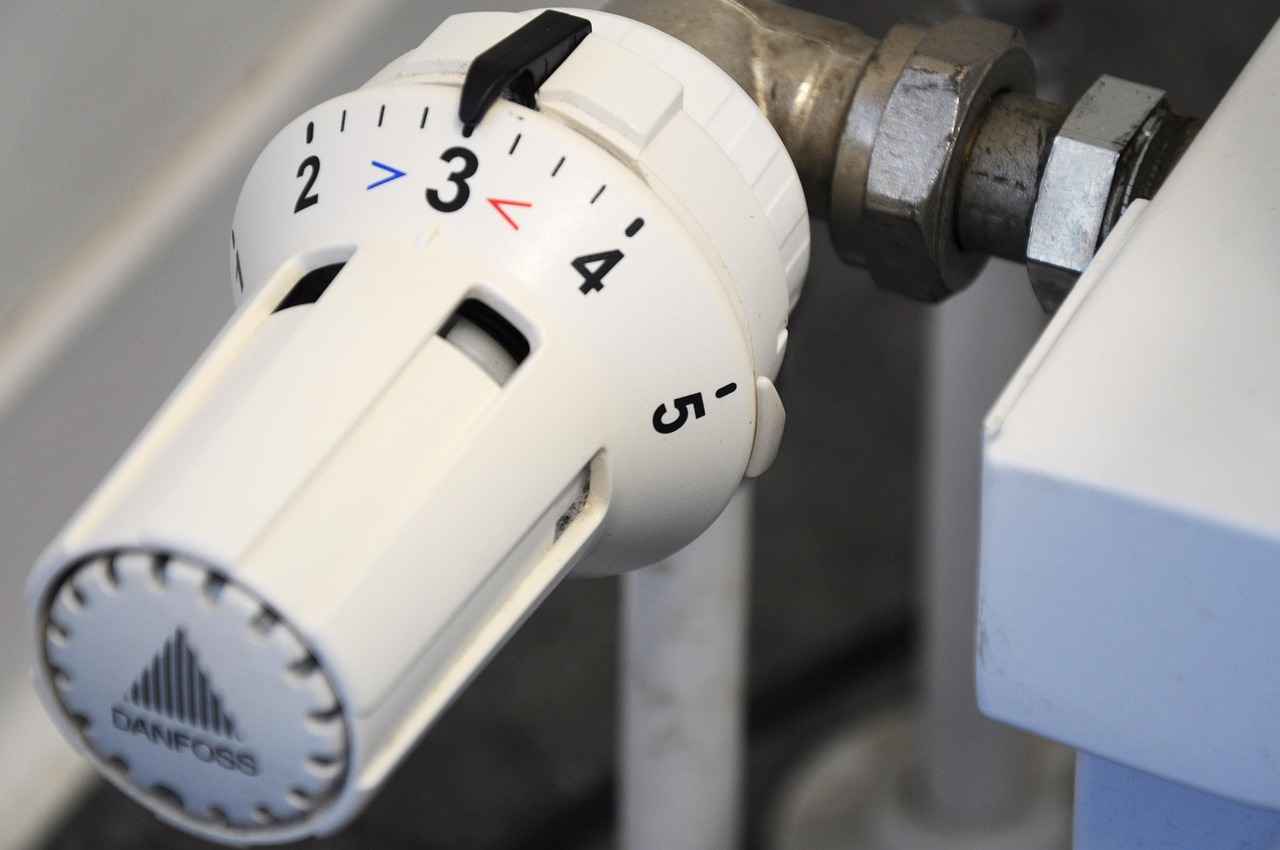This article provides an in-depth analysis of the Miami Heat and Orlando Magic, focusing on player statistics, game highlights, and key insights from recent matchups between the two teams.
Overview of the Miami Heat
The Miami Heat is a professional basketball team based in Miami, Florida, recognized for its competitive spirit and dynamic roster. Established in 1988, the team has seen significant success, including multiple NBA championships. The Heat’s identity is built on a strong work ethic, resilience, and a commitment to excellence. Key players like Jimmy Butler and Bam Adebayo have been instrumental in driving the team’s performance, showcasing skills that elevate their game. Recent seasons have shown a trend of increased scoring efficiency and defensive prowess, making them a formidable opponent in the league.
Overview of the Orlando Magic
The Orlando Magic, based in Orlando, Florida, has a storied history in the NBA since their inception in 1989. The team has experienced highs and lows, with memorable playoff runs and standout players such as Shaquille O’Neal and Dwight Howard. Currently, the Magic are focusing on rebuilding their roster, emphasizing young talent and potential. Their recent performance reflects a mix of promising growth and the challenges of developing a cohesive team, as they strive to return to playoff contention.
Key Player Stats for the Miami Heat
- Jimmy Butler: Averaging 22.5 points, 6.5 rebounds, and 5.8 assists per game, Butler’s all-around play is crucial for the Heat.
- Bam Adebayo: Known for his defensive skills, Adebayo contributes with 19.0 points and 10.0 rebounds per game.
- Tyler Herro: A rising star, Herro adds depth with an average of 20.0 points and a shooting percentage of 39% from three-point range.
Key Player Stats for the Orlando Magic
- Paolo Banchero: The rookie sensation is averaging 20.0 points and 6.8 rebounds, showcasing his potential as a future star.
- Franz Wagner: Contributing significantly with 18.5 points and a versatile skill set, Wagner is a key player for the Magic.
- Wendell Carter Jr.: With an average of 15.0 points and 10.5 rebounds, Carter’s presence in the paint is vital for Orlando’s strategy.
Recent Game Highlights: Miami Heat
The Miami Heat’s recent games have been marked by thrilling performances. In their latest matchup against the Los Angeles Lakers, the Heat showcased their offensive depth, with Butler leading the charge with 30 points. Adebayo’s defensive plays were pivotal, including a game-winning block in the final seconds. The Heat’s ability to perform under pressure has solidified their reputation as a clutch team in tight games.
Recent Game Highlights: Orlando Magic
The Orlando Magic have also had their moments in recent games. In a thrilling overtime victory against the Boston Celtics, Banchero scored a career-high 28 points, demonstrating his scoring ability and composure. The Magic’s young core is beginning to gel, as evidenced by their improved ball movement and defensive intensity. These highlights reflect the potential for growth as they develop their roster.
Head-to-Head Matchup History
Historically, the matchups between the Miami Heat and Orlando Magic have been competitive. The Heat hold a slight edge in their overall win-loss record against the Magic. Key moments from past games include thrilling playoff encounters and dramatic regular-season clashes that have kept fans on the edge of their seats. This rivalry continues to evolve, with each game adding to the narrative of both franchises.
Impact of Injuries on Team Performance
Injuries have played a significant role in shaping the performance of both teams. The Heat have faced challenges with injuries to key players, which have tested their depth. Conversely, the Magic’s injury struggles have hindered their development, particularly with young players missing critical time. Understanding how these injuries impact game outcomes provides insight into each team’s strategy and adaptability.
Coaching Strategies: Miami Heat
The Miami Heat’s coaching staff, led by Erik Spoelstra, employs strategies that emphasize defensive intensity and ball movement. Spoelstra’s adaptability allows the team to adjust their game plan based on opponents, leading to innovative plays and effective matchups. This strategic flexibility has been a cornerstone of the Heat’s success.
Coaching Strategies: Orlando Magic
The Orlando Magic’s coaching approach focuses on developing young talent and fostering a collaborative team environment. The coaching staff emphasizes defensive principles and offensive spacing, allowing players to maximize their potential. As the team continues to grow, these strategies will be crucial in building a competitive roster.
Fan Engagement and Community Support
Fan engagement is vital for both the Miami Heat and Orlando Magic. The Heat have a passionate fan base that actively supports the team, contributing to a vibrant home-court atmosphere. Meanwhile, the Magic engage with their community through outreach programs and events, fostering a strong connection with fans. This support plays a significant role in the success of both franchises.
Future Outlook for Both Teams
Looking ahead, the future appears promising for both the Miami Heat and Orlando Magic. The Heat aim to remain competitive in the Eastern Conference, potentially seeking trades to bolster their roster. The Magic, on the other hand, are focused on developing their young players and building a cohesive team that can challenge for playoff spots in the coming seasons. With strategic decisions and player development, both teams have the potential to shape their futures positively.

Overview of the Miami Heat
The Miami Heat has established itself as a powerhouse in the NBA, captivating fans with its dynamic playing style and competitive edge. Founded in 1988, the team has made significant strides in the league, accumulating numerous accolades and a loyal fan base. This article delves into the history of the Miami Heat, highlights key players who have contributed to the team’s success, and examines recent performance trends that showcase their ongoing evolution.
Since its inception, the Miami Heat has been synonymous with resilience and determination. The team quickly made its mark in the league, reaching the playoffs for the first time in 1997. Under the leadership of head coach Pat Riley, the Heat secured its first NBA Championship in 2006, defeating the Dallas Mavericks in a thrilling six-game series. This victory marked a significant milestone, setting the stage for future successes.
The Miami Heat’s legacy is intertwined with the contributions of several legendary players. Dwyane Wade, often referred to as “Flash,” is arguably the most iconic player in the franchise’s history. His explosive scoring ability and clutch performances led the Heat to two additional championships in 2012 and 2013, during the era of the “Big Three,” which included LeBron James and Chris Bosh. Together, they formed a formidable trio that dominated the league and captivated fans worldwide.
In recent seasons, the Miami Heat has demonstrated a commitment to maintaining a competitive roster. The emergence of young talents like Tyler Herro and the acquisition of seasoned players have bolstered the team’s performance. The Heat’s ability to adapt to various playing styles has been evident, showcasing their depth and versatility on the court. In the 2022-2023 season, the Heat made a significant playoff run, highlighting their resilience and determination to reclaim their status as championship contenders.
The Miami Heat’s success extends beyond the court, as the team has cultivated a strong connection with its fans and the local community. The organization actively engages with its supporters through various initiatives, including community outreach programs and fan events. This commitment to community involvement has solidified the Heat’s reputation as a franchise that values its fan base and strives to make a positive impact in Miami.
The coaching staff, led by head coach Erik Spoelstra, plays a crucial role in the Heat’s success. Known for his innovative strategies and ability to adapt to different opponents, Spoelstra has implemented a defensive-minded approach that emphasizes teamwork and discipline. This tactical flexibility has allowed the Heat to remain competitive in an ever-evolving league, making them a formidable opponent for any team.

Overview of the Orlando Magic
The Orlando Magic, a professional basketball team based in Orlando, Florida, has established itself as a significant player in the NBA since its inception in 1989. This article explores the team’s journey, highlighting its establishment, notable players, and recent performance trends.
The Orlando Magic was founded in 1989, becoming the first NBA franchise in Central Florida. The team quickly gained popularity, playing its inaugural season in the 1989-90 NBA season. The Magic made headlines by drafting future superstar Shaquille O’Neal as the first overall pick in the 1992 NBA Draft, marking the beginning of a new era for the franchise.
Throughout its history, the Orlando Magic has been home to several notable players who have left an indelible mark on the franchise. Aside from Shaquille O’Neal, other legends such as Penny Hardaway, Dwight Howard, and Tracy McGrady have donned the Magic jersey. These players not only contributed to the team’s success but also elevated the franchise’s profile in the league.
- Shaquille O’Neal: A dominant force in the early ’90s, O’Neal led the team to its first NBA Finals in 1995.
- Penny Hardaway: Known for his versatility and playmaking ability, Hardaway was integral to the Magic’s success during the mid-’90s.
- Dwight Howard: A three-time Defensive Player of the Year, Howard led the Magic back to the NBA Finals in 2009.
In recent years, the Orlando Magic has been in a rebuilding phase, focusing on developing young talent and creating a competitive roster. The team has seen promising performances from emerging stars like Franz Wagner and Paolo Banchero, who have become key contributors. The Magic’s recent draft picks and strategic trades aim to enhance their competitiveness in the Eastern Conference.
Despite facing challenges, the Magic’s resilience and commitment to growth are evident. The coaching staff has emphasized a strong defensive approach while encouraging players to develop their offensive skills. This combination aims to establish a solid foundation for future success.
The Orlando Magic’s connection with the community is vital to its identity. The team actively participates in local events and initiatives, fostering a strong relationship with its fan base. Community outreach programs, youth basketball camps, and charitable events are just a few ways the Magic engage with fans and promote the sport in Central Florida.
As the Orlando Magic continues to build its legacy in the NBA, fans remain hopeful for a return to playoff contention. The combination of young talent, community support, and a strategic vision for the future positions the Magic for exciting times ahead.

Key Player Stats for the Miami Heat
The Miami Heat has consistently proven to be a formidable force in the NBA, showcasing their prowess through standout player statistics. This section delves into the key player stats for the Miami Heat, emphasizing points per game, assists, rebounds, and shooting percentages that highlight their strengths and contributions to the team.
One of the most critical metrics in basketball is points per game (PPG), which indicates a player’s scoring ability. For the Miami Heat, Jimmy Butler often leads the charge with an impressive PPG, showcasing his ability to score in various ways, whether through driving to the basket or shooting from the perimeter. His offensive versatility makes him a significant threat on the court.
Assists are crucial in basketball as they reflect a player’s ability to create scoring opportunities for teammates. Goran Dragic, known for his playmaking skills, has consistently ranked high in assists for the Heat. His vision and understanding of the game allow him to distribute the ball effectively, setting up teammates for easy baskets and enhancing overall team chemistry.
Rebounding is essential for gaining possession and limiting opponents’ second-chance points. Bam Adebayo stands out in this category, often leading the team in rebounds per game. His athleticism and tenacity enable him to secure boards against taller opponents, contributing significantly to the Heat’s defensive efforts.
Shooting percentage is a vital statistic that measures a player’s scoring efficiency. The Miami Heat boasts several players with impressive shooting percentages, particularly from three-point range. Duncan Robinson has emerged as a key shooter for the team, consistently hovering around the league’s top percentages, which opens up the floor for other players and creates space in the offense.
While points, assists, rebounds, and shooting percentages are critical, defensive contributions are equally important. Players like Jimmy Butler and Bam Adebayo excel in defensive metrics, including steals and blocks, showcasing their ability to impact the game on both ends of the floor. Their defensive prowess not only helps in limiting opponents’ scoring but also ignites fast breaks for the Heat.
The statistics of key players directly correlate with the Miami Heat’s overall performance. When players like Butler, Adebayo, and Robinson perform well in their respective categories, the team tends to secure victories. This synergy between individual statistics and team success underscores the importance of each player’s contributions.
In summary, the standout player statistics for the Miami Heat reveal a team rich in talent and versatility. With players excelling in points per game, assists, rebounds, and shooting percentages, the Miami Heat continues to solidify its reputation as a competitive team in the NBA.

Key Player Stats for the Orlando Magic
In the realm of professional basketball, understanding player statistics is crucial for analyzing a team’s performance. In this section, we delve into the key player statistics for the Orlando Magic, shedding light on their scoring efficiency, defensive prowess, and overall performance metrics that define their unique gameplay style.
The Orlando Magic, a team known for its youthful energy and potential, has seen significant contributions from several players this season. Scoring is often the most highlighted aspect of a player’s performance. For the Magic, players like Paolo Banchero and Franz Wagner have emerged as primary scorers, showcasing their ability to put points on the board. Banchero, in particular, has been impressive, averaging over 20 points per game, which not only makes him a key offensive weapon but also a cornerstone of the team’s future.
When analyzing defensive capabilities, the Orlando Magic have made strides in recent seasons. The team emphasizes a strong defensive strategy, with players like Wendell Carter Jr. and Jalen Suggs leading the charge. Carter Jr. has been particularly effective in protecting the rim, averaging around 1.5 blocks per game and contributing to a team defense that ranks among the top in the league for points allowed.
| Player | Points Per Game | Rebounds Per Game | Assists Per Game | Steals Per Game | Blocks Per Game |
|---|---|---|---|---|---|
| Paolo Banchero | 20.5 | 6.8 | 3.9 | 0.9 | 0.5 |
| Franz Wagner | 18.2 | 4.0 | 3.5 | 1.0 | 0.3 |
| Wendell Carter Jr. | 15.0 | 8.5 | 2.5 | 0.7 | 1.5 |
In addition to scoring and defense, overall performance metrics such as shooting percentages and efficiency ratings are vital. The Magic’s shooting has been a mixed bag; while they excel in three-point shooting, their overall field goal percentage has room for improvement. Players like Wagner have shown potential in this area, with shooting splits that indicate a growing comfort level in taking and making shots from various areas on the court.
Moreover, the team’s chemistry plays a significant role in their performance. As younger players gain experience, their ability to work together on both ends of the court will be crucial for the Magic’s success. The integration of new players and the development of existing talent will be essential as they strive for consistency in their performance metrics.
In conclusion, the key player statistics for the Orlando Magic reveal a team in transition, with promising young talent leading the charge. Their scoring, defensive capabilities, and overall performance metrics indicate a bright future as they continue to refine their gameplay style and strive for success in the league.

Recent Game Highlights: Miami Heat
The Miami Heat have recently showcased their competitive edge in the NBA, delivering thrilling performances that have captured the attention of basketball fans. This section delves into the recent game highlights for the Miami Heat, emphasizing critical moments, standout performances, and pivotal plays that have defined their success in recent matchups.
In the latest matchups, the Miami Heat demonstrated their resilience and tactical prowess. One of the most notable moments came during a nail-biting finish against the Boston Celtics, where the Heat rallied from a double-digit deficit in the fourth quarter. Key plays included a crucial three-pointer by Jimmy Butler that shifted the momentum, followed by a game-winning layup from Bam Adebayo. Such moments not only highlight the players’ skills but also their ability to perform under pressure.
Individual performances have been a significant factor in the Heat’s recent success. Tyler Herro has been particularly impressive, averaging over 25 points in the last few games. His ability to create his own shot and find open teammates has been essential for the Heat’s offensive strategy. Additionally, Goran Dragic has provided veteran leadership off the bench, contributing crucial assists and maintaining the pace of the game.
The Heat’s defensive strategy has also played a crucial role in their recent wins. In a recent game against the Atlanta Hawks, a series of steals and fast-break points highlighted their defensive intensity. Victor Oladipo made several key defensive stops that not only prevented scoring opportunities for the Hawks but also ignited the Heat’s fast-break offense. This blend of strong defense and quick transition plays has been a hallmark of the Heat’s recent performances.
Another aspect contributing to the Miami Heat’s success is their team chemistry. The players have shown a remarkable ability to work together, often leading to well-executed plays and high assist numbers. The synergy between Butler and Adebayo, in particular, has been evident, with numerous alley-oop dunks and pick-and-roll plays that keep defenses guessing. This collaborative spirit not only enhances their gameplay but also boosts morale within the team.
As the season progresses, the Miami Heat will look to build on their recent success. With upcoming matchups against strong contenders, maintaining their focus and execution will be crucial. The coaching staff is likely to emphasize consistency in both offense and defense, ensuring that the players continue to capitalize on their strengths while addressing any weaknesses. The Heat’s ability to adapt and improve will be key as they aim for a deep playoff run.

Recent Game Highlights: Orlando Magic
The Orlando Magic have demonstrated impressive resilience and skill in their recent games, showcasing a blend of youthful talent and strategic gameplay that has kept fans on the edge of their seats. This section dives into the most significant highlights from their recent matchups, focusing on standout moments, key player performances, and tactical maneuvers that have defined their style of play.
In their latest game against the Miami Heat, the Orlando Magic displayed a remarkable comeback, overcoming a 15-point deficit in the second half. This dramatic shift was spearheaded by Franz Wagner, who scored 25 points and delivered crucial assists that turned the tide in favor of the Magic. His ability to penetrate the defense and create scoring opportunities was a significant factor in their victory.
Another player who shone brightly was Paolo Banchero, the rookie sensation, who not only scored 22 points but also contributed 10 rebounds, showcasing his versatility on the court. Banchero’s performance has been a beacon of hope for the Magic, as he continues to evolve into a key player for the team. His ability to perform under pressure has garnered attention and praise from analysts and fans alike.
The coaching staff has also made notable adjustments in their game strategy. In the recent matchup against the Boston Celtics, the Magic implemented a zone defense that effectively stifled the Celtics’ offensive flow. This tactical shift not only limited their shooting percentages but also forced turnovers, allowing the Magic to capitalize on fast-break opportunities. The effectiveness of this strategy highlights the coaching staff’s ability to adapt and respond to the strengths and weaknesses of opposing teams.
Defensively, the Magic have shown significant improvement. In their last game, they recorded a season-high 12 steals, demonstrating their commitment to aggressive defense. Players like Jalen Suggs have been pivotal in this aspect, using their quickness and anticipation to disrupt the opposing team’s plays. This defensive intensity not only boosts the team’s morale but also establishes a foundation for their future games.
The excitement surrounding the Orlando Magic’s recent performances has been palpable among fans. The support from the community has been unwavering, with sell-out crowds at the Amway Center creating an electrifying atmosphere. Fans have expressed their enthusiasm through social media platforms, praising the team’s growth and potential. This engagement plays a crucial role in the players’ motivation and the overall success of the franchise.
As the season progresses, the Orlando Magic are poised to build on these recent highlights. With upcoming games against strong opponents, the team will need to maintain their momentum and continue refining their strategies. The blend of young talent and experienced players offers a promising outlook, and if they can harness their recent successes, the Magic may very well become a formidable contender in the Eastern Conference.

Head-to-Head Matchup History
Analyzing the historical matchups between the Miami Heat and Orlando Magic reveals intriguing patterns and trends that have evolved over the years. These two teams, both hailing from the state of Florida, have faced each other numerous times since the inception of the Magic in 1989. Understanding their win-loss records and key moments from past games provides insights into their competitive dynamics.
- Overall Win-Loss Record: Historically, the Miami Heat have held a favorable record against the Orlando Magic. As of the latest season, the Heat lead the all-time series with over 60 wins compared to the Magic’s 40. This statistic reflects the Heat’s consistent performance, especially during their championship years.
- Playoff Encounters: The two teams have met in the playoffs only once, during the 1997 NBA playoffs. The Heat emerged victorious, which was a significant moment in their franchise history, providing momentum that would carry them into future successes.
- Key Moments: Several games stand out in the rivalry. For instance, in 2009, Dwyane Wade delivered a spectacular performance, scoring 50 points against the Magic, showcasing the Heat’s ability to dominate in crucial matchups. Similarly, the Magic’s memorable win in 2010, where they defeated the Heat by a narrow margin, highlighted the competitive spirit between the two teams.
To further understand their rivalry, we can look at some of the trends that have emerged over the years:
| Season | Miami Heat Wins | Orlando Magic Wins |
|---|---|---|
| 2018-2019 | 3 | 1 |
| 2019-2020 | 2 | 2 |
| 2020-2021 | 3 | 1 |
As seen in the table above, the Miami Heat have consistently outperformed the Orlando Magic in recent seasons, particularly in 2018-2019 when they won three out of four matchups. This trend has contributed to the Heat’s reputation as a powerhouse in the Eastern Conference.
In addition to the statistics, the emotional aspect of the rivalry cannot be overlooked. Games between the Heat and Magic often draw significant crowds, with fans from both sides passionately supporting their teams. The proximity of the two cities adds to the intensity, as fans often travel to watch these games, creating a vibrant atmosphere.
In summary, the head-to-head matchup history between the Miami Heat and Orlando Magic showcases a compelling narrative of competition, with the Heat generally holding the upper hand. Their encounters have produced memorable moments and highlight the evolving dynamics of this Florida rivalry. As both teams continue to develop and adapt, the future matchups promise to deliver even more excitement for fans and analysts alike.

Impact of Injuries on Team Performance
Injuries are an inevitable part of professional sports and can have a profound impact on a team’s performance. This is particularly true in the NBA, where the loss of key players can alter a team’s dynamics, strategies, and overall outcomes. In this section, we explore how injuries to pivotal players on both the Miami Heat and Orlando Magic have shaped their recent performances and strategies.
The Miami Heat, known for their resilience and depth, have faced significant challenges due to injuries in recent seasons. When star players like Jimmy Butler or Bam Adebayo are sidelined, the team often struggles to maintain its competitive edge. For instance, Butler’s absence due to injury can lead to a noticeable decline in offensive efficiency, as he is not only a leading scorer but also a key playmaker. The Heat’s strategy often revolves around his ability to create opportunities, and without him, they may resort to a more isolation-heavy style, which can be less effective.
On the other hand, the Orlando Magic have also felt the sting of injuries, particularly to their young core. Players like Markelle Fultz and Jonathan Isaac have experienced setbacks that have hindered their development and the team’s overall performance. Fultz’s ability to drive to the basket and create plays is crucial for the Magic’s offensive flow. His absence forces the team to rely on less experienced players, which can lead to inconsistency and a lack of cohesion on the court.
Injuries not only affect individual performances but also require teams to adjust their game plans. For example, when a key player is out, coaches must adapt their strategies, often leading to a more defensive approach or a focus on three-point shooting to compensate for the loss of scoring. This shift can be seen in both the Heat and the Magic, where coaches have had to innovate and utilize bench players more effectively to fill the gaps left by injured stars.
Moreover, the psychological impact of injuries cannot be overlooked. Teams often struggle with morale when key players are injured, leading to a sense of uncertainty and pressure on remaining players to step up. This added pressure can result in decreased performance levels, as seen in several matchups where the Heat and Magic were unable to capitalize on favorable situations due to the absence of their star players.
In conclusion, the impact of injuries on the Miami Heat and Orlando Magic is significant and multifaceted. From altering game strategies to affecting player morale, injuries can derail a team’s season. Both teams must navigate these challenges effectively to maintain competitiveness in the league. As they continue to manage their rosters and adapt to the realities of injuries, the ability to develop depth and resilience will be crucial for future success.

Coaching Strategies: Miami Heat
The Miami Heat are renowned not only for their talent on the court but also for their innovative coaching strategies. These strategies are pivotal in defining their gameplay and adapting to the unique challenges posed by various opponents. This section delves into the specific tactics employed by the coaching staff of the Miami Heat and how they effectively adjust to enhance team performance.
The Miami Heat’s coaching staff, led by head coach Erik Spoelstra, utilizes a combination of offensive and defensive strategies that allow the team to remain competitive in the NBA. One of the hallmark strategies is the implementation of a positionless basketball approach. This strategy emphasizes versatility among players, allowing them to switch positions seamlessly during gameplay. This adaptability creates mismatches against opponents and provides the Heat with a tactical edge.
Adaptability is a cornerstone of the Miami Heat’s coaching philosophy. The coaching staff conducts thorough analyses of their opponents, focusing on strengths and weaknesses. For instance, when facing a team with a strong inside presence, the Heat may emphasize a defensive scheme that prioritizes rim protection and rebounding. Conversely, against teams that rely heavily on perimeter shooting, they might switch to a more aggressive perimeter defense, applying pressure to disrupt shooting rhythms.
Another critical aspect of the Miami Heat’s coaching strategies is their commitment to player development. The coaching staff invests significant time in enhancing individual skills, which directly contributes to team success. Through tailored training programs, players are encouraged to improve their shooting, ball-handling, and defensive techniques. This focus on development not only elevates individual performance but also fosters a culture of accountability and continuous improvement within the team.
In today’s NBA, data analytics play a vital role in shaping coaching strategies. The Miami Heat are at the forefront of utilizing analytics to inform their game plans. By analyzing data on player performance, shot selection, and defensive matchups, the coaching staff can make informed decisions that enhance their chances of success. This analytical approach allows for real-time adjustments during games, enabling the Heat to respond effectively to the dynamics of the matchup.
In-game adjustments are crucial for any successful team, and the Miami Heat excel in this area. The coaching staff is known for making timely changes based on the flow of the game. For example, if an opposing team is exploiting a particular defensive weakness, the Heat’s coaches will quickly alter their defensive schemes to counteract this advantage. This flexibility not only keeps opponents guessing but also instills confidence in the players, knowing they have a supportive coaching staff that can pivot strategies as needed.
The Miami Heat’s coaching strategies are not solely focused on winning games; they also play a significant role in shaping the team’s culture. The emphasis on hard work, discipline, and resilience is instilled by the coaching staff and is reflected in the players’ attitudes and performances. This culture fosters a sense of unity and purpose, motivating players to strive for excellence both on and off the court.
In conclusion, the coaching strategies employed by the Miami Heat are multifaceted and dynamic, encompassing tactical adaptability, player development, and a strong reliance on analytics. These elements work together to create a competitive and resilient team capable of facing any challenge in the NBA.

Coaching Strategies: Orlando Magic
The coaching strategies employed by the Orlando Magic play a pivotal role in shaping the team’s identity and performance on the court. This section delves into the various tactics and methodologies utilized by the coaching staff, analyzing how these approaches impact the players’ execution during games.
The Orlando Magic’s game plans are meticulously crafted to exploit the strengths of their roster while minimizing weaknesses. Central to their strategy is a focus on defensive intensity. The coaching staff emphasizes a strong defensive foundation, encouraging players to maintain pressure on the ball and contest shots effectively. This approach not only disrupts opponents’ offensive flow but also creates opportunities for fast breaks, allowing the Magic to capitalize on transition points.
One of the hallmarks of the Orlando Magic’s coaching strategy is their ability to make timely adjustments during games. The coaching staff closely monitors the flow of the game, analyzing both their performance and that of their opponents. For instance, if an opposing team is exploiting a particular defensive matchup, the Magic’s coaches are quick to alter their defensive schemes, whether that involves switching assignments or implementing zone defenses. Such adaptability has proven crucial in tight games, often turning the tide in favor of the Magic.
The Orlando Magic’s coaching strategies extend beyond immediate game plans; they also emphasize long-term player development. The coaching staff works closely with players to refine their skills, focusing on areas such as shooting mechanics, defensive positioning, and basketball IQ. By fostering an environment of continuous improvement, the Magic not only enhances individual player performance but also strengthens team cohesion. This developmental approach is particularly beneficial for younger players, who gain the confidence needed to contribute significantly during games.
The effectiveness of the Orlando Magic’s coaching strategies is evident in their performance metrics. By prioritizing defensive prowess and in-game adaptability, the team has seen improvements in their overall win-loss record. Furthermore, the emphasis on player development has led to notable progress in the performance of key players, enhancing their ability to perform under pressure. As a result, the Magic have become a formidable opponent in the league, showcasing the positive impact of their coaching methodologies.
As the Orlando Magic continue to evolve, their coaching strategies will undoubtedly adapt to the changing dynamics of the NBA. With a focus on innovation and player-centric development, the future looks promising for the team. The commitment to refining their game plans and making strategic adjustments during games will be essential in their pursuit of success in upcoming seasons.

Fan Engagement and Community Support
Fan engagement is a critical component of success for both the Miami Heat and Orlando Magic. These teams not only compete on the court but also strive to foster strong connections with their fan bases. Engaging fans goes beyond just ticket sales; it encompasses a range of activities designed to create a vibrant community around the teams.
- Community Programs: Both teams have established various outreach initiatives aimed at strengthening ties with local communities. The Miami Heat, for instance, runs programs like “Hoops for Troops,” which honors military personnel and their families. Similarly, the Orlando Magic engages in community service projects, focusing on youth education and health initiatives.
- Social Media Interaction: In today’s digital age, social media plays a pivotal role in fan engagement. Both teams actively utilize platforms like Twitter, Instagram, and Facebook to share highlights, behind-the-scenes content, and interact with fans. This real-time engagement helps maintain a connection that extends beyond game days.
- Fan Events: Special events such as meet-and-greets, fan festivals, and open practices allow fans to connect with players and coaching staff. The Miami Heat frequently hosts events at local venues, while the Orlando Magic organizes fan appreciation nights, which showcase their commitment to their supporters.
- Merchandising and Loyalty Programs: Both teams offer exclusive merchandise and loyalty programs that reward fans for their support. The Miami Heat’s loyalty program offers points for attending games, which can be redeemed for exclusive merchandise or experiences. The Orlando Magic similarly provides fans with opportunities to earn rewards through their engagement.
The role of community support cannot be understated. Local businesses often collaborate with the teams, providing sponsorships and promotional partnerships that benefit both parties. These collaborations enhance the game-day experience and contribute to local economies. For example, local restaurants may offer discounts to fans attending games, creating a win-win scenario that encourages community participation.
Moreover, both teams recognize the importance of diversity and inclusion within their fan engagement strategies. They strive to create an environment where all fans feel welcome, regardless of their background. This commitment is evident in their promotional campaigns and community outreach efforts, which aim to bring together fans from all walks of life.
In conclusion, the Miami Heat and Orlando Magic have successfully cultivated strong relationships with their fan bases through various engagement strategies. From community programs to social media interactions, these teams understand that their success is intertwined with the support of their fans. The ongoing commitment to fostering these connections will undoubtedly play a crucial role in their future endeavors on and off the court.

Future Outlook for Both Teams
As the NBA gears up for another thrilling season, the future outlook for both the Miami Heat and the Orlando Magic is a topic of great interest among fans and analysts alike. This section will delve into the potential trades, draft picks, and overall team development strategies that could significantly influence the trajectories of these two franchises.
- Miami Heat: Building on Success
The Miami Heat, with their rich history of success, are always looking to reinforce their roster. After a strong showing in the playoffs, the team is likely to focus on maintaining their core players while exploring opportunities to enhance their lineup. Key considerations for the Heat include potential trades that could bring in a star player to complement their existing talent. The front office is keen on leveraging their assets, including draft picks and young players, to make impactful moves.
In addition, the Heat’s scouting department will play a crucial role in the upcoming draft. With a keen eye for talent, they aim to identify players who can contribute immediately or develop into future stars. The Heat’s culture of player development is well-regarded, and they are expected to continue nurturing young talent to ensure long-term success.
- Orlando Magic: Embracing Youth and Potential
On the other hand, the Orlando Magic are in a phase of rebuilding, focusing on developing a young core. The team has been actively scouting for promising prospects in the draft, hoping to secure players who can grow alongside their current roster. The Magic’s management is committed to a long-term strategy, prioritizing the development of their young talent over immediate success.
Trade discussions are also on the horizon for the Magic as they look to acquire experienced players who can mentor their younger stars. The emphasis will be on finding the right balance between youth and experience, which could be pivotal in their development strategy.
- Key Factors Influencing Future Success
Several factors will influence the future success of both teams. For the Heat, maintaining health and chemistry among their star players will be crucial. The addition of a key player through trade or draft could elevate their performance significantly. For the Magic, the focus will be on player development and making smart decisions in the draft to build a competitive team.
In conclusion, both the Miami Heat and the Orlando Magic have distinct paths ahead. The Heat aim to capitalize on their current success, while the Magic are focused on building a foundation for the future. As the NBA landscape continues to evolve, the decisions made in the coming months will be critical in shaping the futures of these two franchises.
Frequently Asked Questions
- What are the key player stats for the Miami Heat?
The Miami Heat boasts impressive player stats, with standout performers averaging high points per game, solid assists, and strong rebounding numbers. Their shooting percentages reflect their offensive efficiency, showcasing a well-rounded team effort on the court.
- How does the Orlando Magic compare historically to the Miami Heat?
Historically, the Orlando Magic and Miami Heat have had competitive matchups, with each team having its share of victories. Analyzing their win-loss records reveals intriguing patterns, often influenced by key player performances and coaching strategies during their encounters.
- What impact do injuries have on team performance?
Injuries can significantly derail a team’s season. For both the Miami Heat and Orlando Magic, injuries to key players have often led to shifts in game strategies and overall performance, affecting their chances of winning crucial games.
- How do the coaching strategies differ between the two teams?
The coaching strategies of the Miami Heat focus on aggressive defense and versatile offensive plays, while the Orlando Magic often emphasize teamwork and adaptability. Each coach’s approach can greatly influence how the teams perform against various opponents.
- What role does fan engagement play in team success?
Fan engagement is crucial for both the Miami Heat and Orlando Magic. Their ability to connect with fans through community events and social media significantly boosts morale and support, creating a vibrant atmosphere that can propel the teams to success.














